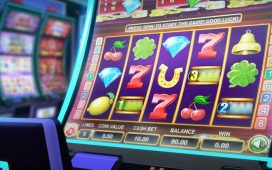If you love coffee, you’ll know that one of the best smells on earth is coffee beans roasting. We also know that the best coffee is the freshest as there is a considerable difference between freshly brewed coffee from fresh beans versus beans that have been sitting out for a while.
But how do you choose your coffee beans from a store? What makes a good cup of coffee? How do you shop for beans that contribute to the positive growth of the coffee community and coffee growers all around the world? If you aren’t someone who like spending much time in the super market evaluating the differences between coffee grounds then you should get an Irish Cream Coffee Grounds Subscription so you are sure that you have a great tasting Air Roasted Flavored Coffee every morning.
If you’re looking for some guidance on how to purchase the freshest and most flavorful coffee, here are some things to consider:
#1 Go for whole beans
If fresh coffee with its intoxicating aroma is what you’re going for, then whole coffee beans are the answer. Why whole beans? Because with pre-packaged ground coffee, it’s impossible to get your freshest cup this way. Coffee beans, when ground, release oils. These oils are responsible for that toasty, fruity, and floral notes you smell. The longer the ground coffee is exposed, the faster the flavors degrade. Purchasing whole coffee beans and grinding them a few minutes before making your morning cup ensures you can get your hands on the freshest cup.
#2 Make sure your coffee is sealed correctly
Packaging is essential when it comes to coffee. Brands like Equator Coffees go the distance in ensuring that their whole bean coffee comes in sealed packaging and not from barrels in a store. If your coffee beans come in their traditional packaging with the wired folded top, it’s best to pour them into an airtight container. Not only will this look pretty sitting on your kitchen countertop or coffee bar, but it’ll also keep your beans fresh. Also, keep this jar away from direct sunlight or your grinder’s hopper. Sunlight can also degrade coffee, which is why the best coffees come in light-sensitive packaging. You should also never keep your beans in the fridge or freezer.
#3 Get to know your beans
If you love coffee, it also helps to know where your beans originate. Coffee planting, understanding the way your beans are grown and processed, the region it’s from, and the information about the farms and roasting locations are essential to help you identify and understand where your favorite beans come from so that you can purchase them again. Being an informed consumer of coffee also enables you to buy sustainably and contribute back to the coffee growers worldwide. Companies that make this information available and accessible also help in the sustainable production of coffee worldwide.
#4 Check the roast date
Roasting dates are essential information on any bag of coffee, and you want beans that have been roasted and packed for not more than two weeks. Once the coffee beans pass this date, they start losing their flavor. Most beans are worth buying from smaller farms and families. Depending on the farmer’s experience, the coffee beans are selected based on quality and size. This is also why learning about where your coffee comes from protects the entire ecosystem of coffee production from exploitation and deforestation and makes way for fair trade.
#5 Understanding direct purchase
If you have the opportunity to purchase beans directly from high-quality roasters, then you’re in for a treat. The direct purchase goes a long way in ensuring you get freshness in every drop. Beans reach their peak within ten days of roasting, and when you buy small quantities of beans from your roaster, you always get a fresh cup of coffee from every grind. Single-origin coffee like the ones from Equator Coffee means that all the necessary steps of procuring perfect coffee beans have been done all in one location. This ensures that the final product is of exceptional quality.
#6 Bean transportation
How your beans are transported makes a difference in their quality. Once the beans are processed, they must be taken to the roaster. How long the transportation time takes and what conditions it goes through will impact its taste and quality. Coffee flown from farm to roaster makes it as fresh as possible.
#7 Knowing your blends
Different beans can have significant flavor differences. It also helps to know the type of roast because this makes the coffee taste like coffee. The ideal roast is a personal choice, so knowing your blends and the kind of roast you like helps you purchase coffee beans that will give you the freshest cup of joe. Generally, there are four types of roasts: light roast, medium roast, medium-dark roasts, and dark roasts. The light roast provides a milder coffee variety, whereas the dark roasts produce an oily surface and a distinct bitterness. The general rule is the darker the roast, the less acidity exists. Not everyone loves the bitterness of coffee and prefers something mild. Depending on your morning cup preference, knowing the different types of roasts will help you purchase the blend and type that best appeals to your taste buds.
#8 Sustainable purchasing
Good coffee companies are very transparent about where their beans are from and how it is processed, transported, and roasted. As a coffee consumer, you are also responsible for purchasing sustainably to ensure that the coffee trade is as sustainable and fair-trade as possible. One way to know this is by educating yourself about the coffee market and the industry. Knowing who you purchase from is also helpful. Is it from small farming communities? Are forests cleared to make coffee? Each time you sip your cup of coffee, you give back to the coffee farming community. Unfortunately, recent research shows that 80% of coffee farmers worldwide are poor because coffee farming is not done sustainably or fairly. Plenty of work goes into planting, harvesting, and roasting these beans, so the best thing you can do as a consumer is to learn where your coffee comes from, and support coffee grown sustainably and produced fairly.






